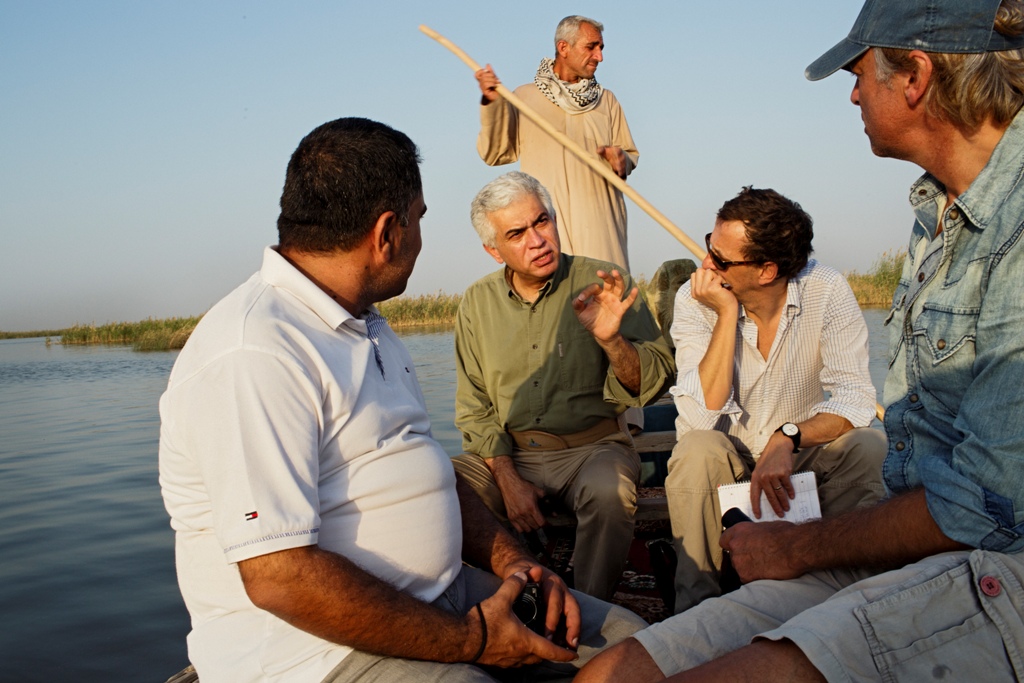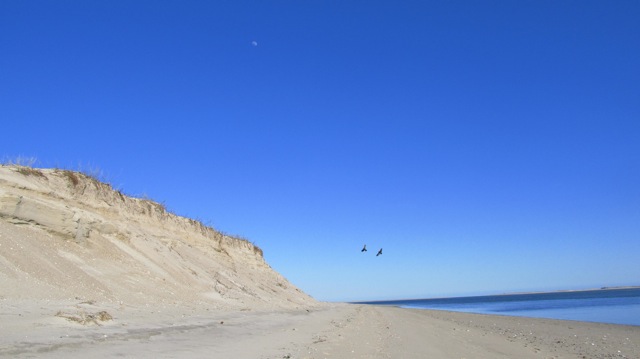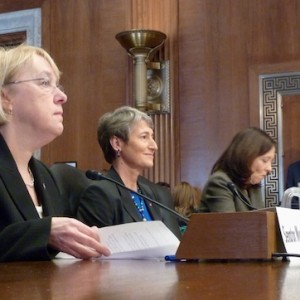Iraqi Engineer Wins Goldman Environmental Prize for Work on Marsh Restoration
Over the last decade, Azzam Alwash has helped revived Iraq’s legendary marshes.

For a traveler expecting sand, finding a wetland in a desert is a miraculous discovery.
For Azzam Alwash, winner of the 2013 Goldman Environmental Prize, childhood boat trips with his father into the marshes in southern Iraq brought delight and wonder.
“I remember leaning over the outside of the boat and looking into this clear water and seeing fish. And I remember heat,” he said in Braving Iraq, a 2010 PBS documentary.
“Every now and then we’d go out of these meandering rivers into these wide lakes and suddenly there’s this breeze that comes into you and cools you down. What I remember is a sense of serenity, a sense of warmth, a sense of love, a sense of being with my father and enjoying a unique place.”
Some feared that this unlikely paradise – in faith, if not in fact, the site of the Garden of Eden – was lost forever. In the 1990s, Saddam Hussein set out to drain the marshes, whose tall reeds and gnarled waterways gave cover to those rebelling against the regime.
The effect was swift. Cut off from the Tigris and Euphrates rivers, some 90 percent of the wetlands evaporated. Now the biggest threats come from dams upstream in Syria and in Turkey and from water mismanagement within Iraq.
Coming Home
Alwash, whose family fled Iraq in the 1980s to escape punishment, never forgot the geography of his youth, even after years in California. After the U.S.-led invasion of Iraq in 2003, he saw an opportunity to help a blighted region.
In the clip below, from Braving Iraq, Azzam talks about childhood trips to the marshes and the shock he felt seeing them upon his return.
Alwash also spoke at a TEDx satellite event in 2011 in Baghdad. He credited the local Ma’dan people with the success of the restoration project.
“It’s not because they love the birds or the reeds,” Alwash told the audience. “They are not treehuggers like me. They are not kayakers. They restored the marshes because their dignity requires restoring the marshes. They restored the marshes because their lives depend on the marshes. Instead of begging for daily work, they can fish all day. Instead of having to be hired out as manual laborers and workers in somebody’s field, they can cut reed, feed it to their water buffalo; they can cut reed and build houses; they can cut reed and move it to the market and sell it. It’s about sustainable living.”
It’s a pragmatic view. And an important one to consider as the world debates the purpose of environmental restoration, who it benefits, and why it should be done.
Alwash is one of six Goldman Prize winners this year. Each will receive $US 150,000.
Brett writes about agriculture, energy, infrastructure, and the politics and economics of water in the United States. He also writes the Federal Water Tap, Circle of Blue’s weekly digest of U.S. government water news. He is the winner of two Society of Environmental Journalists reporting awards, one of the top honors in American environmental journalism: first place for explanatory reporting for a series on septic system pollution in the United States(2016) and third place for beat reporting in a small market (2014). He received the Sierra Club’s Distinguished Service Award in 2018. Brett lives in Seattle, where he hikes the mountains and bakes pies. Contact Brett Walton






Leave a Reply
Want to join the discussion?Feel free to contribute!